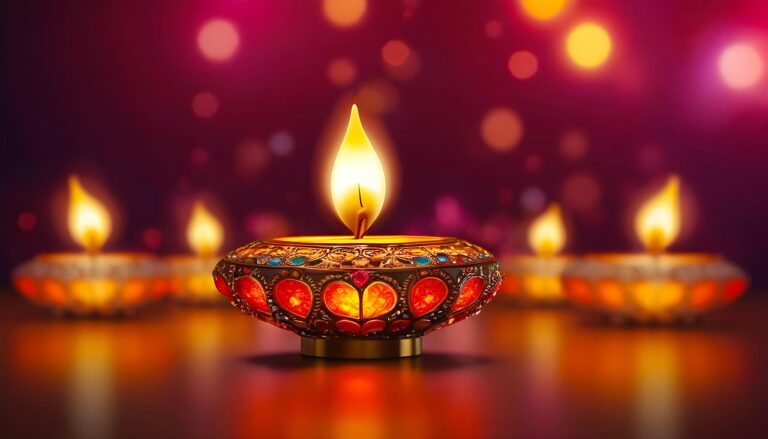The Spiritual Significance of Diwali: Beyond the Festival of Lights
Diwali, often called the Festival of Lights, is one of the most significant and widely celebrated Hindu festivals, symbolizing the victory of light over darkness and good over evil. Its spiritual meaning runs deep beyond the dazzling lamps and fireworks that mark the festivities.
The festival traces its roots to various mythological stories. The most popular narrative is from the epic Ramayana — Diwali celebrates Lord Rama’s triumphant return to Ayodhya after 14 years of exile and his victory over the demon king Ravana. The citizens of Ayodhya illuminated the entire city with oil lamps to welcome their beloved king and signify the victory of righteousness.

Diwali is also associated with Lord Krishna’s victory over the demon Narakasura, symbolizing the destruction of evil forces. Additionally, it marks the worship of Goddess Lakshmi, the deity of wealth and prosperity, who is believed to visit homes during Diwali night to bless devotees with prosperity and happiness.
Spiritually, Diwali urges devotees to seek inner light by dispelling ignorance and negativity within themselves. Lighting diyas and candles represents awakening this inner light. It is a time for self-reflection, forgiveness, and renewal.
The festival involves several rituals such as Lakshmi Puja, where offerings and prayers are made inviting divine blessings. Homes are cleaned and decorated to create a pure and auspicious space. Families come together to share sweets and gifts, fostering bonds of love and community.
In modern times, Diwali also symbolizes new beginnings, often observed as the start of a new financial year for businesses. It encourages optimism, growth, and the pursuit of knowledge.
Despite its grandeur, Diwali reminds us that true illumination comes from spiritual awakening, compassion, and unity—values that illuminate human life all year round.